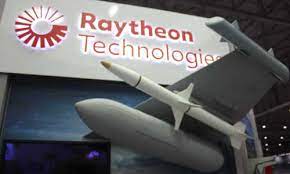DOJ Suffers Rule 29 Dismissal of Criminal Antirust No-Poach Case in Aerospace Industry

The Department of Justice’s Antitrust Division has suffered setbacks in its precedent-setting criminal prosecution of no-poach agreements in labor markets. The latest and perhaps most surprising defeat occurred when the trial judge in Connecticut granted the defense motion for judgment of acquittal after the Antitrust Division prosecutors completed the government’s case.
In a written decision, the court granted the defense’s motions for judgement of acquittal, ruling that no reasonable juror could convict the defendants based on a fair reading of the government’s case. In a surprising decision, the court prevented the jury from considering the case against six aerospace and staffing company bosses.
DOJ’s latest defeat comes on the heels of a string of losses against other no-poach defendants, including DaVita and its former CEO, and an acquittal of four home care agency managers for a no-poach conspiracy in Maine. These recent losses also occurred after DOJ lost a high-profile set of cartel trials in the chicken producing industry in Denver, Colorado.
DOJ’s criminal record has been sorely tainted, particularly with respect to prosecution of anti-competitive conspiracies in the labor market. Assistant Attorney General Jonathan Kanter defended the prosecution of these cases, claiming they were “righteous.” So far, DOJ’s record has not resulted in any convictions, aside from two guilty pleas by cooperating defendants. In another case, DOJ earned a guilty verdict on an obstruction of justice charge against one defendant, while the jury acquitted the defendants on criminal antitrust charges.

In its most recent setback, Judge Victor Bolden granted the Rule 29 motion by the defendants, noting that workers were still able to switch between different engineering staffing companies servicing Pratt & Whitney’s needs. The evidence failed to establish that there was a real and meaningful allocation of labor in the market. Instead, Judge Holden cited numerous “exceptions” to the alleged agreement such that it was impossible to conclude that the agreement was a real allocation of engineers among the supplier companies working on Pratt and Whitney projects.
Judge Bolden noted that there was evidence that the restrictions existed, there was evidence that these restrictions changed constantly through the course of the conspiracy, suggesting that hiring was permitted on a broad scale. In the end, the judge concluded that no “reasonable juror could conclude that there was a ‘cessation of “meaningful competition” in the allocated market.’”
The government’s case concluded last week and the next day Judge Holden granted the defendants’ motion for judgment of acquittal. Judge Holden’s decision was somewhat complicated by his pre-trial ruling denying motions to dismiss filed by the defendants, finding that the indictment, as alleged, sufficiently demonstrated a criminal Section 1 market allocation scheme. In distinguishing his pre-trial ruling, Judge Holden cited the fact that his pre-trial ruling was based on an assumption that the evidence was adequate, as alleged, and that his post-trial decision reflected the weaknesses in the government’s case.

In particular, Judge Holden cited the Second Circuit’s decision in Bogan v. Hodgkins, 166 F.3d 509, 514 (2d Cir. 1999), in which the Court of Appeals affirmed the trial court’s grant of the defendants’ motion for summary judgment where the defendants’ agreement to prevent hiring of insurance agents did not constitute a per se illegal market allocation agreement that should be analyzed under a rule of reason analysis. The government argued that the Bogan case was inapplicable because it related to an “intra-firm” agreement (e.g. among agents for Northwestern Mutual) as opposed to distinct agreements among separate staffing companies, that is, an inter-firm agreement.
Notwithstanding these defeats, DOJ is likely to continue its aggressive criminal prosecutions of labor market cases. AAG Kanter is committed to the no-poach cases and may cause the Antitrust Division to exercise more care in the cases they choose to prosecute. While trial judges have consistently denied pre-trial motions to dismiss these cases, DOJ may exercise discretion to focus on cases where the evidence of the agreement and economic harm may be stronger.















